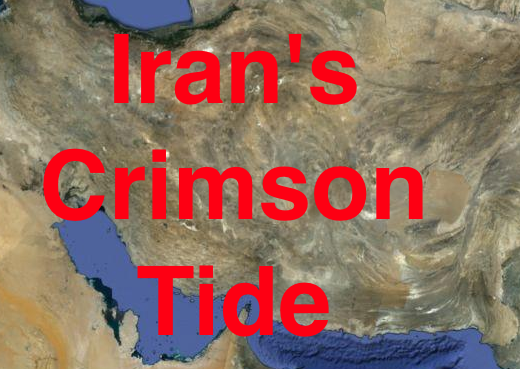
Defense Secretary Leon Panetta was so busy talking about “red lines” over the weekend, you could be forgiven for thinking he was a hockey player — or a racecar driver. Of course, the defense chief’s red lines dealt with Iran – and it’s worth noting, for those of you keeping score at home – that one red line is far more crimson than the other.
He said – twice – on CBS’s Face the Nation that Tehran’s current efforts to “develop a nuclear weapon” is a “red line” it had better not cross. He said – once – that any Iranian effort to shut down shipping through the Strait of Hormuz, the nozzle through which a fifth of the world’s traded oil flows, would be a second “red line” Tehran had better not breach.
So which line is redder?
Make no mistake about it: even though Panetta spoke more about Iran’s nuclear program than the Strait of Hormuz, any action by Iran to shut down shipping through the strait would warrant quick U.S. military action to re-open it. Most experts agree that Tehran would be violating international maritime law by impeding free passage through the waterway.
Iran’s nuclear program is far less scarlet. Panetta seemed to concede as much: “Are they trying to develop a nuclear weapon? No, but we know that they’re trying to develop a nuclear capability, and that’s what concerns us.”
One can never prove a negative, which makes Panetta’s bald no startling. Nations that have hidden their ultimately successful nuclear work from the world’s prying eyes include India, Israel, North Korea and Pakistan.
Developing nuclear weapons is a process. Iran insists that isn’t its destination, but the world’s nuclear-proliferation experts don’t believe it. Yet – unless Iran has a nuclear site unknown to the rest of the world – its efforts to enrich nuclear fuel to the level required for weapons is six months to a year away — once it begins that enrichment process. Only then would the countdown to war over Iran’s nuclear program begin in earnest, U.S. officials suggest.
But shutting down the strait would send the global economy into a tailspin overnight. While soaring oil prices might only be temporary – and the U.S. military could certainly reopen it within weeks, if not days — neither Washington nor the rest of the world community could tolerate such a willful flouting of international law.
One other thing to keep in mind: any decision to attack Iran over its nuclear program will be led, or allowed (if Israel conducts the raids) by Washington. It’s a choice, to be made at a time of Washington’s choosing. Conversely, the timing of any decision to block the Strait of Hormuz rests with Iran. It’s always easier, militarily and politically speaking, to retaliate, rather than initiate.
So it’s best to think of the Strait of Hormuz as the true red line. Tehran’s nuclear ambition –- at least as of today – trends more towards pink.


